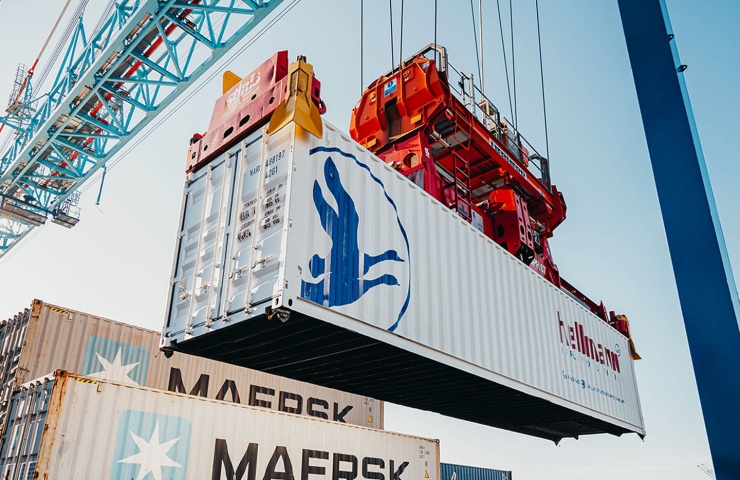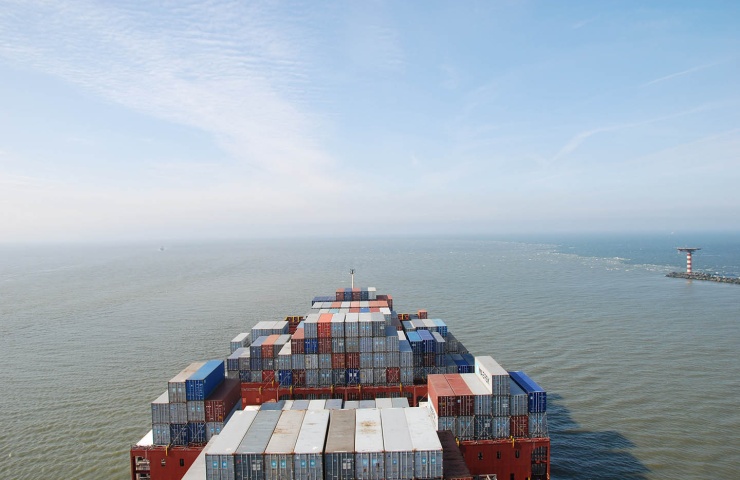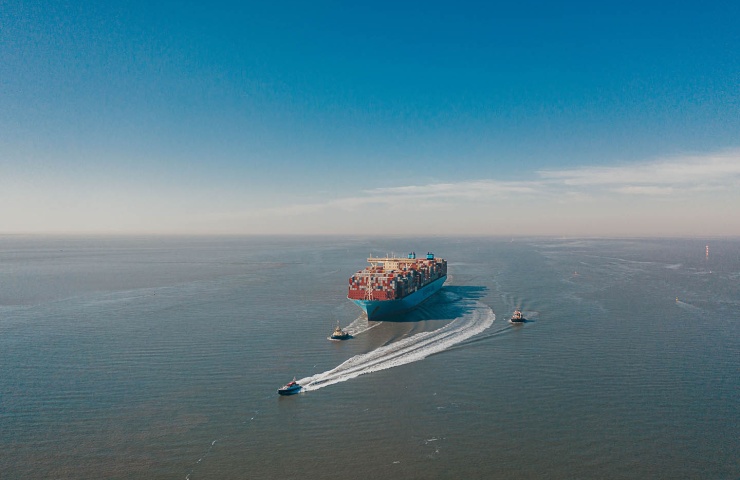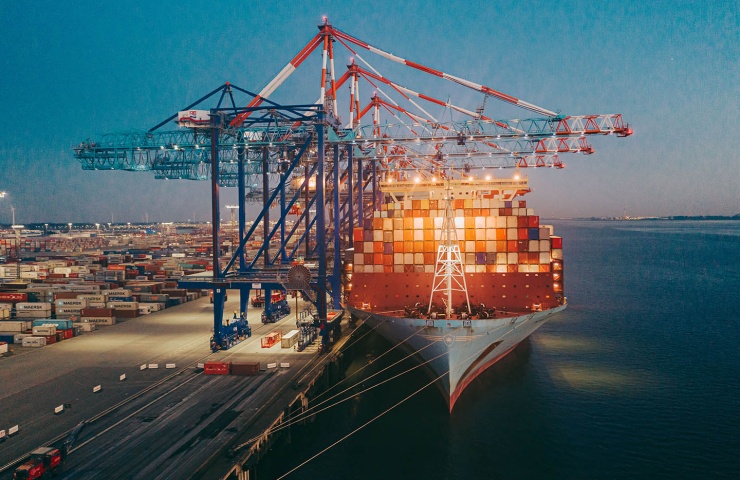SOLAS – Verified Gross Mass
SOLAS is the International Convention on Safety Of Life At Sea. Recent amendments to this convention will have a fundamental impact on how we have to manage the movement of containerized cargoes within the International Supply Chain.
WHAT IS SOLAS/VGM?
The Solas amendments require that all shippers of containers obtain and submit a “Verified Gross Mass” (VGM) for every loaded container tendered to ocean carriers before loading on the vessel. This law came into effect on 1 July 2016 and has automatically been signed into law by 162 countries that are signatories to the SOLAS convention.
The basis of this amendment to the convention is to improve the safety of those engaged in the movement of containers through the supply chain and to reduce incidents and accidents that can lead to the loss of cargoes, assets, and indeed, life.

FAQs
WHAT IS REQUIRED IN A VGM SUBMISSION?
The Verified Gross Mass is the total declared weight for every full container and includes special equipment, e.g. Open Top, Flat Rack, ISO Tank Containers etc. Please note that each container must have a separate VGM. There can be more than one container on a submission but the VGM for each container must be shown.
The Verified Gross Mass can be obtained via one of two agreed methods:
-
After packing and sealing a container, the shipper may weight or arrange for a third party to weigh the packed container.
-
The shipper or a third party ( as arranged by the shipper) may weigh all packages and cargo items, including the mass of pallets, dunnage, and other packaging materials securing the cargo to be packed in the container, and add the tare weight of the conta
WHO IS TO MAKE THE VGM SUBMISSION?
The requirements in SOLAS are that the Shipper is the party responsible for providing the VGM submission. In the SOLAS regulations, the shipper is described as the party entering into a contract of carriage with the Carrier. Additionally, TT Club, our insurers, have described the Shipper as the named party on the VOCC ( underlying carrier ) Bill of Lading.
For us at Hellmann, this means that if a shipment is being moved under our Pelorus Line Bill of Lading then the following applies:
-
Pelorus Line or Hellmann Worldwide Logistics As Agents for Pelorus Line, are the party who will have the contract of carriage with the underlying VOCC Carrier.
-
Pelorus Line or Hellmann Worldwide Logistics are the named party as the Shipper on the VOCC underlying Carrier - Bill of Lading.
Therefore the submission to the Carrier must come from us, Pelorus Line or Hellmann Worldwide Logistics as Agents for Pelorus Line. We make this submission in our name, as the shipper. Our client’s contract of carriage is with us. Therefore we require submission from the client to us. The information in regards to the containers must be back to back. There are two distinctly separate submissions.
-
From the client to us as Pelorus Line/Hellmann
-
From us, as Pelorus Line/Hellmann, to the Carrier
Please ensure that all and any supporting documents that are submitted as part of the VGM are kept on file for the statutory limit within your Country. One point to clarify here is that there is that we do not include the VGM weight on the Bill of Lading or indeed customs declarations – these are an entirely different process. Additionally, there is no requirement in the SOLAS regulations for any container to be reweighed either at the port of origin, destination, or at any transshipment point. However, containers loaded prior to 01.07.16 that are for transshipment on or after 01.07.16 will require a VGM submission.
Please note that failure to provide a VGM or an accurate VGM may result in additional costs, including storage, demurrage, container weighing, and rerouting costs, and commercial costs of delay, as well as for possible fines or penalties imposed. These will be for the account of the responsible party.
COMMUNICATION OF THE MESSAGE
The majority of Carriers will require the message by EDI, electronically. A global standard (VERMAS) has been created and the minimum message requirements have been defined as follows:
-
Container Number
-
VGM Weight (Numeric )
-
Measurement (e.g. Kilos, Lbs.)
-
Weighing Type Code (Method 1 or 2)
-
Authorized Responsible Person
-
Hellmann Reference Number
-
Individual Countries specifications may require additional fields to be added (e.g. Authorization Numbers)
As Hellmann we will use several media to make our submissions to Carriers:
-
Portal (e.g. INTTRA)
-
Direct Carrier EDI
-
Carrier Websites
-
Manual Submission (e.g. E-Mail/Fax/Hard Copy)
VGM Submissions cannot be given or received by phone/text etc.
GLOBAL LAW & GUDIELINES VS COUNTRY IMPLEMENTATION
Nearly all of the above refers to the Globally implemented law and those areas that may be seen as global standards around the processes and requirements needed to be compliant. However, the implementation and enforcement of VGM have been left at country level and we can see that this may vary from Country to Country.
Again, to be clear the amendments to SOLAS as the requirement for VGM have already been signed into International Law. Country Authorities will concentrate primarily on tolerance levels, penalties, and any additional requirements that are needed on a local level. However, the Law will be in place irrespective of whether the Countries have issued any additional local requirements.
As stated tolerance levels and penalties for inaccurate submissions will be decided at Country Level and each Hellmann Country will check with the responsible Country authority to determine what has been set.
WEIGHING EQUIPMENT
The requirement in SOLAS is that the weighing scales used must meet the applicable accuracy standards and requirements of the State in which the equipment is being used.
TERMINALS, GATE IN AND CUT OFF DATES
There is no requirement in SOLAS for a “No VGM – No Gate In” rule. The Law only applies a rule of ‘’No VGM – No Load”. However, the decision on whether to allow a container into a Terminal without a VGM submission has been left to the Terminals and will therefore vary from Country to Country and indeed from Terminal to Terminal.
Again, this will need to be checked with your local Carrier and/or Terminal. Similarly, the cut-off date for the VGM submission will also lie with the carrier and will vary from Carrier to Carrier and possibly from Port to Port. This will also need to be checked at a local level.
LESS THAN CONTAINER LOAD (LCL)
LCL shipments are NOT covered by the SOLAS Regulations. This applies to the individual LCL shipments themselves. Therefore there is no requirement for us as Hellmann to request a VGM Submission from our clients for LCL shipments and neither is there a requirement for us to submit one to our LCL Consolidator partners (e.g. WWA, Vanguard, ECU Line ) where we are co-loading.
However, the full consolidated container itself does require a VGM submission. Where we are co-loading this will be the responsibility of our LCL Consolidator Partners and where we are loading our consolidations it will be the responsibility of Hellmann.

Get in touch




